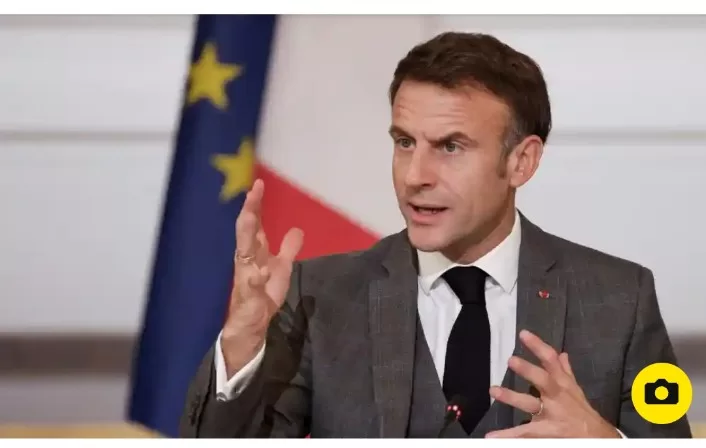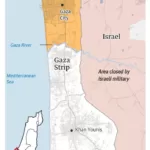French President Emmanuel Macron has staunchly rebuffed Israeli plans advocating for the creation of safe zones in southern Gaza, asserting that a humanitarian ceasefire is the only viable means to safeguard lives in the embattled region. Addressing a hastily convened conference in Paris, attended by political figures, NGOs, and UN humanitarian leaders, Macron criticized the proposed safe zones, deeming them a “very bad idea” lacking political backing for effective implementation.
The conference, designed to consolidate disparate national initiatives aiding Gaza, emphasized the urgent need for a humanitarian ceasefire, a call the UN Security Council has struggled to endorse due to political divisions. Proposals such as humanitarian aid drops, maritime corridors from Cyprus to southern Gaza, and field hospitals within Gaza have proliferated in the diplomatic discourse.
Israel declined Macron’s invitation to the Paris conference, while Palestinian Prime Minister Mohammad Shtayyeh attended, condemning the Israeli plan to force Gazans to the south as an assault on the entire Palestinian population. Macron, planning to engage Israeli officials after the conference, sought to bridge divergent initiatives and amplify the call for a humanitarian ceasefire.
Martin Griffiths, head of the UN humanitarian agency OCHA, decried the escalating war as a viral force, warning that the current conflict could spread, engulfing the region. He dismissed proposals for safe zones, emphasizing the insufficient aid reaching Gaza and the need for a fivefold increase in daily supplies.
European Commission President Ursula von der Leyen supported a maritime humanitarian corridor proposed by Cypriot President Nikos Christodoulides, storing aid in Larnaca and transporting it to Gaza’s southwest coast. Greek Prime Minister Kyriakos Mitsotakis expressed willingness to contribute naval assets, contingent on safety and infrastructure requirements.
While calls for Israel to open the Erez crossing were made at the conference, UN representatives emphasized the imperative for a comprehensive ceasefire, rejecting short-lived pauses. The conference underscored the complexity of diplomatic efforts amid the ongoing crisis, with leaders striving for collaborative solutions to alleviate the dire humanitarian situation in Gaza.







